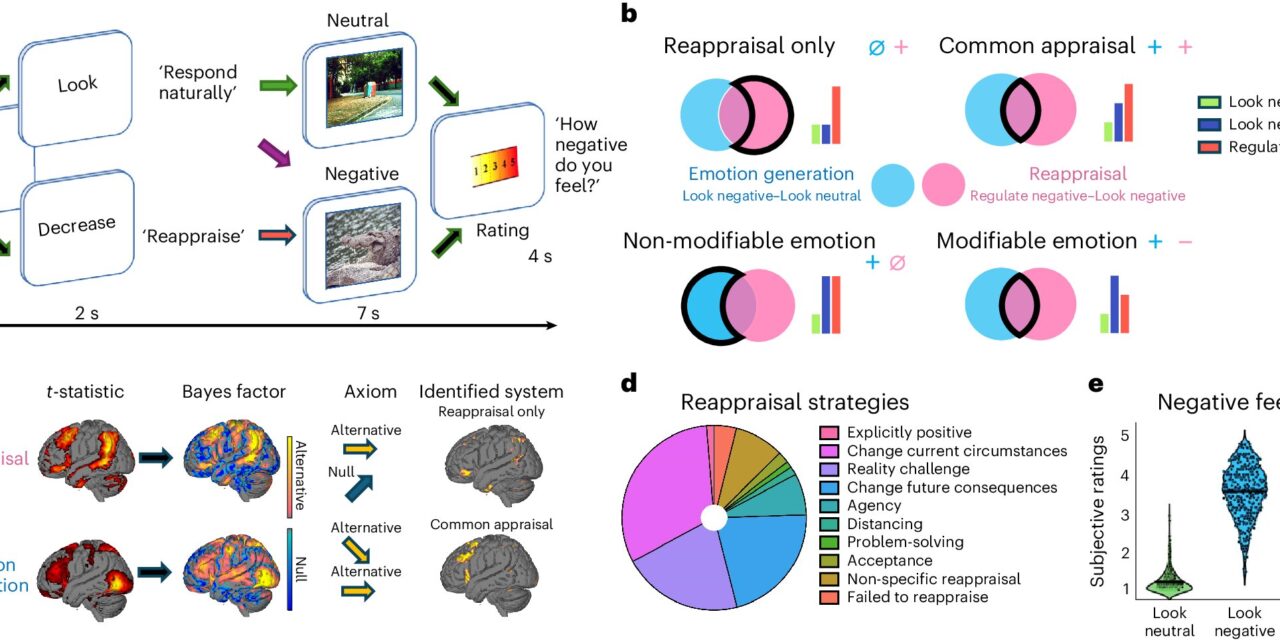In a pioneering effort to unravel the intricate mechanisms governing human emotions, a new Dartmouth-led study has shed light on the brain regions responsible for regulating emotions—a crucial aspect of mental health and well-being.
Published in Nature Neuroscience, the study marks a significant advancement in our understanding of how the brain navigates and modulates emotional responses, offering potential avenues for therapeutic interventions targeting mental health disorders.
Lead author Ke Bo, a postdoctoral researcher at Dartmouth’s Cognitive and Affective Neuroscience Lab (CANlab), underscored the importance of identifying brain regions dedicated to emotion regulation, highlighting their potential clinical applications.
Utilizing computational methods, the researchers analyzed brain activity data from fMRI studies conducted at the University of Pittsburgh. Participants were exposed to stimuli likely to evoke negative emotions, such as distressing images, and were then tasked with recontextualizing these stimuli to mitigate their aversiveness.
Through meticulous examination of neural activity patterns, the researchers distinguished brain areas implicated in emotion generation from those involved in emotion regulation—commonly known as “reappraisal.” Notably, they pinpointed specific regions of the anterior prefrontal cortex and higher-level cortical networks crucial for emotion regulation, shedding new light on their role in cognitive processes and mental health.
Bo emphasized the significance of these findings, noting that individuals who can activate these emotion regulation-selective brain regions demonstrate greater resilience to negative experiences, underlining the importance of these regions in promoting mental well-being.
Moreover, the study unveiled the involvement of neurotransmitter systems—such as dopamine, serotonin, cannabinoids, and opioids—in modulating emotion regulation. The researchers observed an overlap between brain regions implicated in emotion regulation and areas rich in receptors for these neurotransmitters, suggesting their potential role in shaping emotional responses.
Senior author Tor Wager highlighted the implications of these findings for mental health treatments, particularly psychedelic therapies targeting serotonin receptors. Understanding the interplay between neurotransmitter systems and emotion regulation could inform novel therapeutic approaches, bridging the gap between psychological and pharmaceutical interventions.
Wager emphasized the importance of integrating basic science insights into therapeutic practices, stressing the need for comprehensive approaches to mental health treatment.
As our understanding of the brain’s intricate workings continues to evolve, studies like this one offer invaluable insights into the neural underpinnings of human emotions, paving the way for innovative treatments to alleviate mental health disorders and enhance emotional well-being.
The study underscores the critical role of emotion regulation in navigating life’s challenges, offering hope for a future where mental health treatments are more effective and accessible to all.












